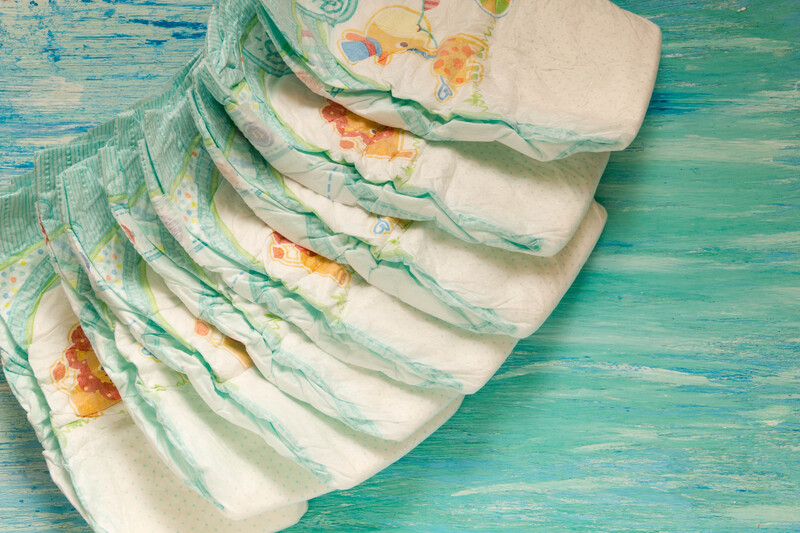What is a Mini Skip: The Essentials
When tackling projects such as home renovations, garden clearances, or small building jobs, managing waste efficiently is a must. That's where mini skips come into play. In this comprehensive guide, you'll learn the essentials of what a mini skip is, its main uses, benefits, and how to choose the right one for your needs.

Understanding Mini Skips: Definition and Overview
A mini skip is a compact waste container, smaller than traditional builders' skips, designed specifically for disposing of small to moderate volumes of waste. Most commonly, mini skips possess a volume capacity ranging from 2 to 3 cubic yards (approximately 1.5 to 2.5 cubic meters). Thanks to their smaller footprint and easy placement, mini skips are ideal for domestic, commercial, and minor construction projects where space and waste volume are limited.
Main Features of Mini Skips
- Compact Size: Typically 2-3 cubic yards in volume, making them suitable for driveways or tight spaces.
- Easy Placement: Their small size allows them to fit almost anywhere, including small gardens and residential properties.
- Convenient for Small Projects: Designed for jobs that generate less waste, such as bathroom remodels, garden cleanups, and attic clear-outs.
- Less Expensive: Hiring a mini skip is generally cheaper than larger skip alternatives.
- Environmentally Friendly: Waste collected in mini skips is sorted and processed, increasing the potential for recycling.
Common Uses of Mini Skips
Mini skips are an extremely versatile waste disposal solution. Here's how individuals and businesses most frequently put them to use:
Domestic Projects
- Renovations & DIY Waste: From redoing a bathroom to installing a new kitchen, mini skips handle tiles, plaster, wood, and general rubbish.
- Garden Clearances: Dirt, leaves, branches, and lawn clippings can easily go in a mini skip, preventing trips to the local tip.
- Spring Cleaning: Clearing old household items like clothes, toys, and light furniture is faster and simpler with a mini skip on site.
Commercial & Office Use
- Small Refits: Offices upgrading their fixtures or redecorating can use mini skips for disposing of packaging, old carpets, and obsolete equipment.
- Retail Stores: Mini skips are perfect for seasonal clear-outs, removing expired stock, or refurbishing storage spaces.
Small-Scale Construction and Trades
- Minor Building Jobs: Jobs such as window installations, fence repairs, or paving work often require waste removal far less than a standard skip can handle.
- Trade Services: Electricians, plumbers, and joiners commonly use mini skips to manage waste from repairs or upgrades.
Benefits of Using a Mini Skip
Opting for a mini skip over other waste management methods offers a host of advantages, from convenience to cost-effectiveness:
1. Space-Saving Solution
Mini skips fit snugly into small driveways, garden paths and business forecourts, making them an excellent choice for urban or cramped locations where space is at a premium.
2. Affordable Waste Disposal
Due to their smaller size, mini skip hire is more affordable than renting standard or builders' skips. This makes them accessible for homeowners and small businesses working on a budget.
3. Easy to Load
With low sides and a manageable height, loading a mini skip is a stress-free process, reducing the risk of injury or mess.
4. Environmentally Conscious
Responsible skip hire companies separate and recycle much of the waste collected, ensuring your rubbish doesn't contribute unnecessarily to landfill.
5. Compliance with Local Regulations
By hiring a reputable skip company, you can rest assured your waste will be disposed of legally and ethically, avoiding fines or penalties.
Mini Skip Sizes and Their Capacities
When it comes to mini skips, capacity is a key consideration. Here are the most common mini skip sizes available in the UK and worldwide:
- 2 Yard Mini Skip: Ideal for roughly 20-30 bin bags of waste, or the equivalent of a small bathroom or garden shed clearance.
- 3 Yard Mini Skip: Accommodates up to 30-40 bin bags of rubbish, great for modest renovation or landscaping projects.
Always check with your chosen provider for precise measurements and restrictions, since skip sizes can vary from one company to the next.
Types of Waste Suitable for Mini Skips
Wondering what you can put in a mini skip? Most general, non-hazardous waste is accepted, but there are a few restrictions for safety and legal reasons.
Allowed Waste Types
- Household Waste (general rubbish, packaging, old clothes, toys)
- Garden Waste (grass, weeds, small branches, soil in small quantities)
- Construction Waste (plasterboard in limited amounts, bricks, rubble, tiles)
- Wood & Timber
- Metals
- Furniture (small domestic items)
Prohibited Waste Types
- Asbestos
- Chemicals & Paint
- Batteries
- Gas Cylinders
- Large Electrical Appliances (fridges, TVs - check with your provider)
- Tyres
- Plasterboard (unless agreed in advance)
Tip: Always ask your skip hire company for a complete list of acceptable and restricted materials before loading your mini skip!
How to Hire a Mini Skip: The Process
Hiring a mini skip is straightforward, but a little planning will ensure you get the most value and avoid any unwanted surprises. Here's a basic guide to the process:
Step 1: Assess Your Waste Volume
Estimate the amount of waste your project will generate. When in doubt, it's better to hire a skip slightly larger than you think you'll need - overfilling a skip is not allowed and may incur extra charges.
Step 2: Choose the Right Skip Size
Determine whether a 2 or 3-yard mini skip will be adequate. If you have a large or bulky item, check with your provider that it will fit inside.
Step 3: Book Your Mini Skip
Contact a reputable local skip hire company. Book in advance, especially in busy periods like spring and summer.
Step 4: Arrange Delivery and Placement
Mini skips can often be placed on your driveway or private property without issue. If your skip needs to go on a public road, you'll likely need a skip permit from your local council - your skip hire provider can usually arrange this on your behalf for a small fee.
Step 5: Fill Your Skip Responsibly
- Load heavier items first, distributing weight evenly.
- Break down large items to maximize space.
- Do not overfill the skip above the rim for safety and legal reasons.
Step 6: Collection and Disposal
When the skip is full or the hire period ends, the provider will collect it and dispose of the contents at a licensed facility.
Permit Considerations for Mini Skips
If you plan to place a mini skip on a public road, pavement, or grass verge, you may require a permit from your local authority. This is to ensure pedestrian and traffic safety. Permit rules and costs vary depending on your location, so always check in advance.
On private property, no permit is required. For most residential jobs, a mini skip's small size means it can be placed safely on your drive or in your front garden.
Tips for Maximising Your Mini Skip Hire
- Sort waste before loading: Separate recyclables and check for restricted items to avoid extra charges.
- Don't overfill: Keep all rubbish below the skip rim to comply with safety laws.
- Be ready on collection day: Ensure access for the skip lorry is clear and there are no obstructions.
- Choose the right provider: Go for fully licensed providers with good reviews and transparent pricing.

Frequently Asked Questions about Mini Skips
How much does it cost to hire a mini skip?
Prices vary by region and duration, but hiring a 2 or 3-yard mini skip typically costs from ?70 to ?130 for a week-long hire. Prices include delivery, collection, and disposal fees, but not permits.
How long can I keep a mini skip?
Most skip hire companies allow 7 to 14 days for a standard hire period. You can usually extend this for an additional fee if you need more time.
What happens to the contents of my mini skip?
Waste is taken to a licensed facility where it's sorted, with as much as possible sent for recycling, and the rest responsibly disposed of.
Can I move a mini skip once placed?
No. Skips should never be moved after delivery due to their weight and regulations. Always decide on the placement before your skip arrives.
Do I need a permit for my mini skip?
Permits are only necessary if your skip will be on public land (e.g., road or pavement). Your skip hire provider can organise this for you if needed.
Conclusion
Mini skips are a superb solution for tackling small-scale waste quickly, efficiently, and cost-effectively. Their compact size makes them perfect for homes with limited space, businesses looking to dispose of minor volumes of rubbish, and anyone seeking a hassle-free way to clear unwanted materials.
By understanding what a mini skip is and how to use one effectively, you can make your next project smoother and more environmentally friendly. For reliable, competitively-priced mini skip hire in your area, always choose a licensed provider, understand the waste restrictions, and remember to book in advance during busy seasons.
Ready to clear your space? Consider a mini skip - the simple, affordable, and smart solution for all your small-scale waste removal needs.